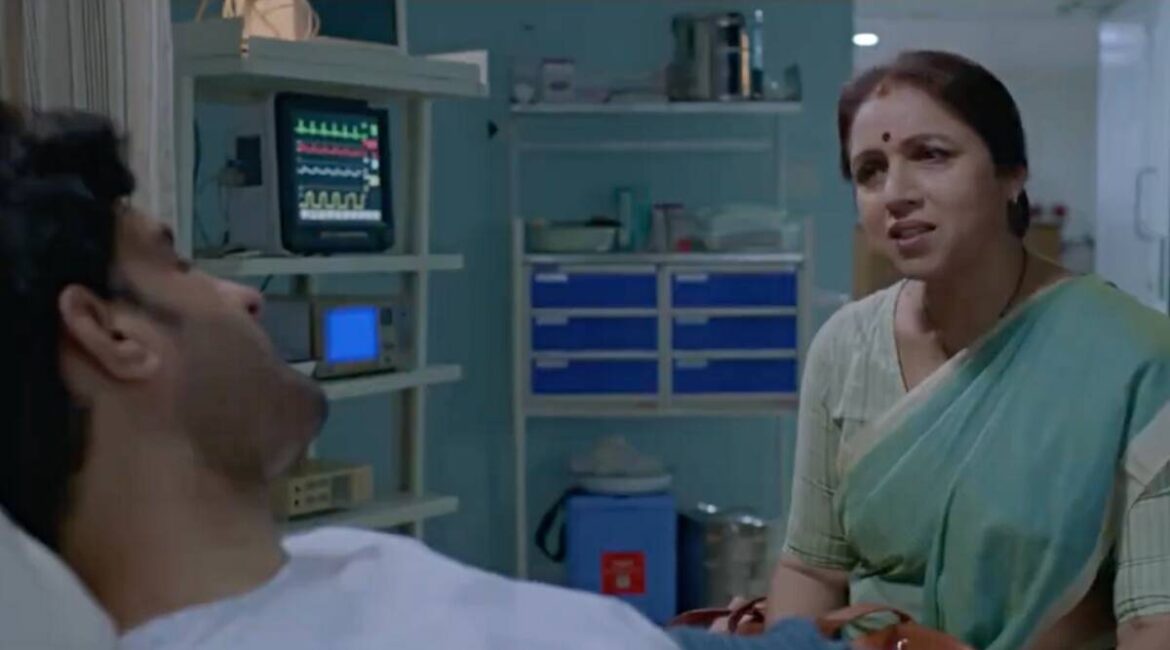Such Is Life:
The film claims to be based on an “incredible” true story, which is overselling it a bit—humane may be, but by no means extraordinary. At the end of Aye Zindagi, a few photographs of the real characters and a ‘where they are now’ slide show actually conveys what the film is trying to say in a concise fashion, more than the heaving duty emotional manipulation that went before.
It may be a gratuitous suggestion, but anyone who wants to make a film on a person suffering from a life-threatening illness must watch Anand (1971), which is a perfect example on how to make a film about death with humour and a lack of heavy handed mawkishness. That would, of course, require, Gulzar’s level of writing, and Hrishikesh Mukherjee’s delicate touch in handling a tragedy without making it depressing; not to mention great performances and music.
Aye Zindagi, written and directed by Anirban, coasts along on good intentions, an important message and some viewers’ easy propensity for tears.
Vinay Chawla (Satyadeep Dubey) is a somewhat charmless protagonist who discovers that his severe symptoms (nausea, nosebleed, hair loss, weight gain) point to liver cirrhosis, an ailment from which even teetotalers can suffer (this is not properly explained). For a software professional he is remarkably clueless, he travels from Lucknow to Hyderabad and asks if he can be treated and back at work in four days. He irritatingly goes on about the job as if it is more important than his life!
At the Hyderabad hospital, Revathi Rajan (Revathi) is a grief counselor, whose job entails persuading grieving families of the recently deceased to donate organs that can apparently save the lives of seven people. She has a happy family—husband and two teenage kids—but how her gloomy work affects her is spoken of more than shown, though that should have been a significant part of the script, because of the way it proceeds. The bare minimum of foreshadowing and the audience can guess what’s next, so there is no surprise when a jolt hits. However, they are taken through the worsening of Vinay’s condition (good work by the make-up and prosthetics team), and how he waits for a liver transplant, while his brother Kartik (Sawan Tank) puts his life on hold, his office colleagues, a smiling nurse Manju (Mrinmayee Godbole), Revathi and the surgeon (Hemant Kher) do all they can to help.
Through all this, the viewer never gets a feel of how difficult the process is (the film is set in 2004, so there have been positive developments) and how financially draining for a middle class family. Aye Zindagi is not a crime film, but in this little hospital oasis, there is no hint of a black market organ trade, or a plausible explanation of how another patient jumps the transplant queue.
In a curiously detached manner, the film handles the emotional wringer the characters go through, particularly survivor’s guilt. A couple of melodramatic scenes are not adequate – the story belongs to Revathi’s courage as much as Vinay’s will power, but the conflicting emotions needed a balance that Anirban is unable to achieve. Even the bedside romance is tepid.
Revathi is left to do the heavy lifting, demonstrating to the younger actors that a show-offy performance is not necessarily a more effective one. To resonate with the audience, a film need not be based on a real story; fiction if used well can be just as valid a means to get the point across.
(This piece first appeared in scroll.in)

